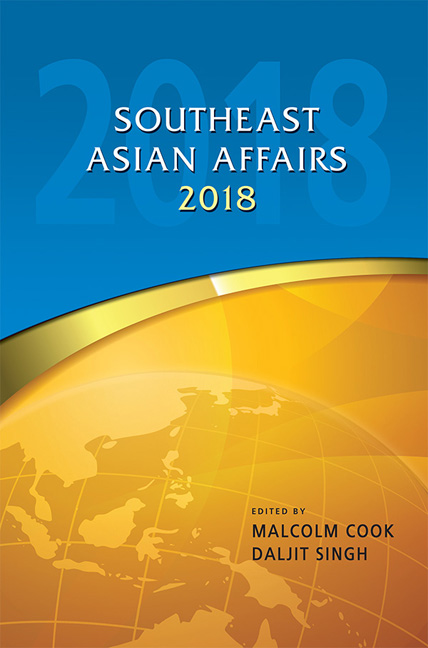Book contents
Singapore in 2017: Testing Times, Within and Without
from SINGAPORE
Published online by Cambridge University Press: 08 June 2019
Summary
Presidential Election
An amendment to the constitution in November 2016 reserved the office of the president for a particular ethnic group if a representative of that group had not been president for five consecutive terms. Other changes also tightened the criteria for those seeking the post: candidates from the private sector must have been the chief executive of a company with at least $500 million in shareholders’ equity (up from $100 million) on average for the most recent three years. Subsequently, in February 2017, Parliament amended the Presidential Elections Act (PEA). The key part of the amendment meant that President Wee Kim Wee is considered to have served the first presidential term in Singapore. Given that President Wee and subsequent holders of the office were from the Chinese or Indian communities, the 2017 Presidential Election would be reserved for a member of the Malay community.
A legal challenge was mounted by former PAP MP Dr Tan Cheng Bock, who in 2011 had come within a whisker of the presidency. Tan submitted that President Wee Kim Wee, unlike his successors, was not elected by Singaporeans and did not serve six-year terms. Therefore, the five presidential terms should only be counted from the term of President Wee Kim Wee's successor, Ong Teng Cheong (1993–99). If Tan's argument held, this would have made the 2017 Presidential Election an open one that any individual could have contested. Tan, who stated that the reason for his challenge was to give Singaporeans a choice, saw this application at the High Court dismissed, prompting him to appeal to the Court of Appeal, which also rejected his application, in August 2017.
Three candidates from the Malay community put themselves forward. One was Halimah Yaacob, former Speaker of Parliament and widely seen as the government's candidate. The other two hopefuls were Farid Khan, chairman of a marine services firm, and Salleh Marican, chief executive of a listed property company. The Presidential Elections Committee (PEC) found that Khan and Marican did not meet the requirement of having led a company with an average shareholder equity of $500 million in the three most recent years. The rejection of their eligibility by the PEC meant that Halimah Yacob was declared president by walkover on 13 September 2017.
- Type
- Chapter
- Information
- Southeast Asian Affairs 2018 , pp. 299 - 320Publisher: ISEAS–Yusof Ishak InstitutePrint publication year: 2018



